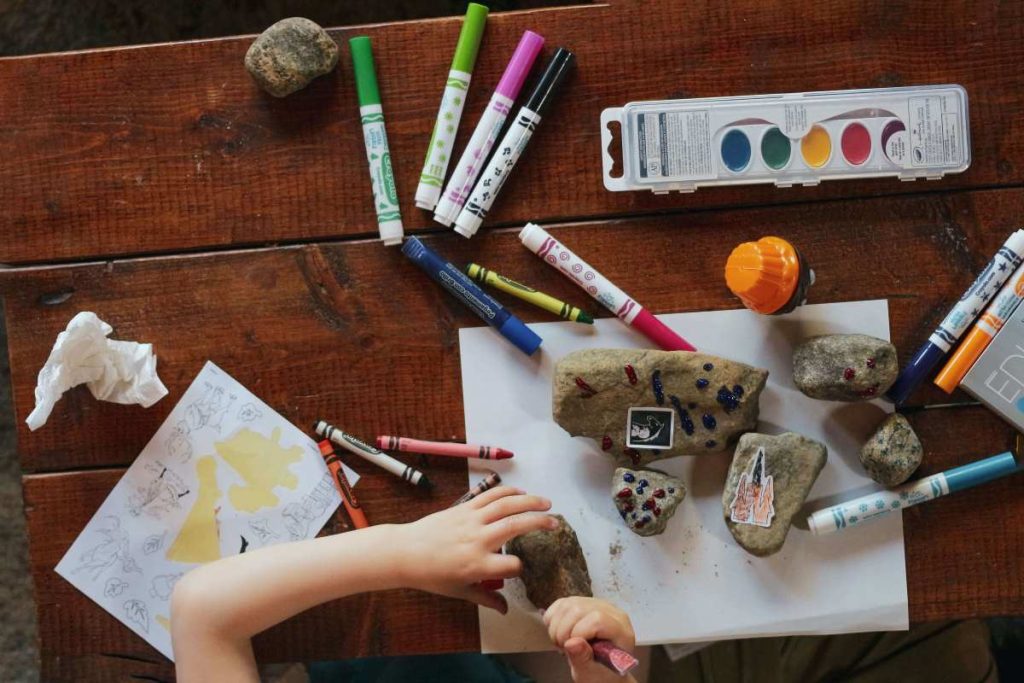Just as nobody expected COVID-19 to be such a vast pandemic, your children may also be surprised with their sudden switch to online classes.
Of course, as responsible parents, you want to give your kids the best possible learning experience, even with the limitations of online learning. Some parents even went to the extent of looking for a house and lot for sale so that they can give their kids a better environment!
If You and Your Kids Are Still Struggling, Don’t Fret. It’s Not Too Late. Here Are Ten Tips to Help Your Kid (Or Kids) Adjust Better to Online Learning:
1. Understand the Switch to Online Learning
Before anything else, you need to understand online learning as a whole. What are the expectations of schools from your kids? How much time should your children spend studying? What makes online learning different from the traditional classroom setting?
You can ask the teachers or follow the guidelines or recommendations of their schools to help you understand the changes.
Moreover, try to understand online learning as an experience for your kids. This will help you empathize with the struggles and achievements your child will experience.
Try to find out what makes traditional learning fun for them and see what you can incorporate into their current situation.
2. Establish a Dedicated Learning Area

Maintaining a work-life balance is already difficult as an adult, especially if you have a lot of stuff going on at work or with your business.
The same thing goes for your children.
Studying from home can take a toll on how they juggle their time between friends, entertainment, and learning — especially if they do everything in their bedroom. If school gets too stressful, they might associate their bedrooms with that stress, which could have adverse effects on their sleep.
Establishing a dedicated learning area will help promote a productive environment for your kids. Moreover, this will provide them with a mental disconnect between studying and having fun. That disconnect will help their work-life balance despite isolation caused by the pandemic.
If you don’t have an extra room for a dedicated learning area, you can set a divided space inside their bedroom.
However, if you think your current home will not suffice and you’ve been thinking of moving anyway, you can contact a real estate expert for a house and lot for sale or a house for rent. Don’t hesitate to tell them the specifics of what type of home or environment you’re looking for.
3. Reduce Distractions
Once you’ve established a dedicated learning environment for your kids, you have to make sure that their workspace has little to no distractions.
If your child or children are in grade school, practically anything can be a distraction. Toys, pets, and even the noise from your television in the living room can be distracting for them. So, make sure it’s quiet and everyone in the household is aware of study time.
On the other hand, if they’re a bit older, distractions can be different for them. Video games, social media, and even their personal lives can have huge distractions. This can be a tad more difficult to control since they’ve already established their individuality, so the best thing to do is just talk to them.
Try to steer clear of extreme limitations like setting up website blockers without talking to them about it first. Drastic measures can provoke them and cause a rift in your relationship.
Overall, everyone in the household must be aware of each others’ distractions so that they can all be avoided. Encourage open communication for everyone and set rules that your kids can follow.
4. Allow Breaks

Sitting in front of a desk for long hours will become exhausting and can even affect your child’s mental ability.
One study found higher chances of depression scores in 18-year-olds who have long sitting hours between ages 12 to 16. The researchers found that 18-year-olds that consistently followed a sedentary lifestyle were 28% more likely to have depression.
Furthermore, another study found that long working hours can increase the risk factors of hypertension. While the research was conducted on workers, it can still be relevant to your kids if they tend to lose sleep from studying.
Now, while you can control the study habits of your children, you can give them tips on how to use breaks to study more effectively.
One of the most commonly used methods is the Pomodoro Technique. If you haven’t heard of it, it is a time management technique that uses the timer to break down tasks into 25-minute intervals. These intervals were separated by short breaks that are usually between 5 to 10 minutes.
If the 25-minute work and 5-minute break don’t work for your kid, you can help them adjust to a better time frame that will work for them. Apps like PomoDone, Focus Booster, and Focus Keeper use the Pomodoro Technique. You can download these apps on the Apple Store.
5. Create a Daily Routine They Can Follow
Following a daily routine is an excellent way for your kids to eventually build a habit — especially with studying.
Help them set up and maintain a schedule that they can stick to so that they can stay organized and in control of their deadlines.
You can try providing them with a large calendar or whiteboard where they can write their tasks for the day. Visual organizers are helpful for students of all ages since it allows them to prioritize their tasks better and simplify complex information.
As parents, you can also help them by asking which tasks are more urgent, which ones they’re struggling with, and which are the easiest for them to finish. That way, you also know which assignments or lessons they might need more help with.
Help them stick to this routine until it becomes a habit they can do and customize alone. You need to be patient in guiding them because building a habit varies from one person to another.
Studies show that it takes between 18 to 254 days to form a new habit. The researchers also concluded that it takes an average of 66 days before a new behavior becomes routine or automatic.
6. Provide Constructive Feedback

Both positive and negative feedback are essential in a person’s growth and learning. Positive feedback provides a sense of achievement or reward, while negative feedback paves the way for improvement.
In a study conducted on Korean students, researchers found that negative verbal feedback made them more accurate when asked for self-assessment. However, in turn, it also produces a negative emotional response and less confidence. Hence, what you say and how you say it matters.
To help you know when to provide positive and/or negative feedback, another study provided great insight.
Researchers found that when a task is short, children benefited from negative feedback than positive ones. Meanwhile, for tasks that needed more extended time to accomplish, children benefited and felt more motivated from positive feedback than negative ones.
You need to find the balance between positive and negative feedback with your kids because it can affect their motivation to work or study. Too much of one thing and a lack of another can have an impact on how they grow as adults.
7. Encourage Them To Socialize
Socializing is an essential element that can affect a child’s mental development and character. Unfortunately, the pandemic forced many people to be “antisocial” as social distancing is vital to avoid catching the virus.
Global News interviewed child psychologist Dr. Mary Alvord and human development professor Kenneth Rubin for insight into how the lack of socialization can affect children.
They mentioned that it’s still too early to be sure of how isolation will affect children as they grow. However, isolation as early as preschool years can have adverse effects on a child’s social competence and relationships.
It is possible that more introverted kids may be alright with the isolation, but more social children may suffer from the lack of social contact.
The best way you can encourage your kids to socialize is to communicate with other parents and teachers. Schedule an online playdate so that your kids can see and interact with their classmates.
If you have teenagers, you can help by supporting their online parties with their friends. For the most part, they’d most likely appreciate some privacy. Although, you can be supportive by making snacks or signing them up for fun, interactive games like Jackbox Games.
8. Encourage Physical Activity

Keeping your children physically active is a great way to support their cognitive ability. This is also why even college students still have Physical Education (PE) in their curriculum.
One study focused on the biological and psychological benefits of PE and found that it can affect the brain and body. They also promoted PE as a method that can be used to improve cognitive ability and mood enhancement.
Don’t worry, though. Your children don’t have to hit the gym every day. The researchers also noted that your kids can still achieve similar benefits even with simple aerobic PE.
Unfortunately, your kids’ PE from school might be limited now because of online learning. So, you might have to find time for them to be more physically active at home.
You can encourage everyone to move by trying family-friendly home workouts or other indoor activities. Check out this blog for fun physical activities for kids 2 to 4.
9. Communicate With Your Child (or Children)
Just like any relationship, communication is key. Even in the family!
Something as simple as asking how school went (and actually listening to them) can come a long way.
In a 2020 study, researchers found that family communication directly affected kids’ psychological well-being. On top of that, it can also affect their body image satisfaction, which is indirectly linked to their self-esteem and risks of depression.
Communicating with your child can also help you know them better, which can be difficult if you already have teenagers.
Try to ask with the intention of listening so they can feel safer with you. Listening also helps them feel like they have someone on their side when things get tough at school and in life.
If you’re too busy with work or your businesses, quick quality time still counts. You can start a communication routine during or after dinner, so everyone has the opportunity to unload at the end of the day (and with a full stomach!).
Building a solid foundation in communication will help your kids grow into more confident adults. It can also determine your bond and relationship with them as they grow older.
10. Make Sure They Have Enough Sleep

Sleep is essential for everybody, but most especially for developing children.
In 2014, researchers found that children’s daily cognitive performance was affected by their sleep quality and time in bed at night. Their sleep also determines their daytime tiredness, which can affect their school life.
Furthermore, sleep quality and quantity may also have a significant impact on their emotional, social, and learning functions.
So, how much sleep do your kids need?
Unfortunately, the 8-hour rule has long been debated against, and scientists claim that the amount of sleep a person needs is subjective.
However, the National Sleep Foundation recommends 12 to 15 hours for infants, up to 14 hours for toddlers, between 10 and 13 hours for preschoolers, 9 to 11 hours for school-aged kids, and 8 to 10 hours for teenagers. Longer hours are essential for growth and development, which is why kids wouldn’t need as much sleep as they become teens.
Build a Healthier Environment For Your Family
While we may not have a concrete idea of when traditional schooling will be back, following these tips can make online learning more enjoyable for your children.
Our goal here at Crown Asia is to help you find a better home for your family. No matter what age or school level your kids are in, you can rest assured we can find the best house and lot for sale that fits your family’s needs.
Related Blog: Online Safety and Cyber Security for your Children


